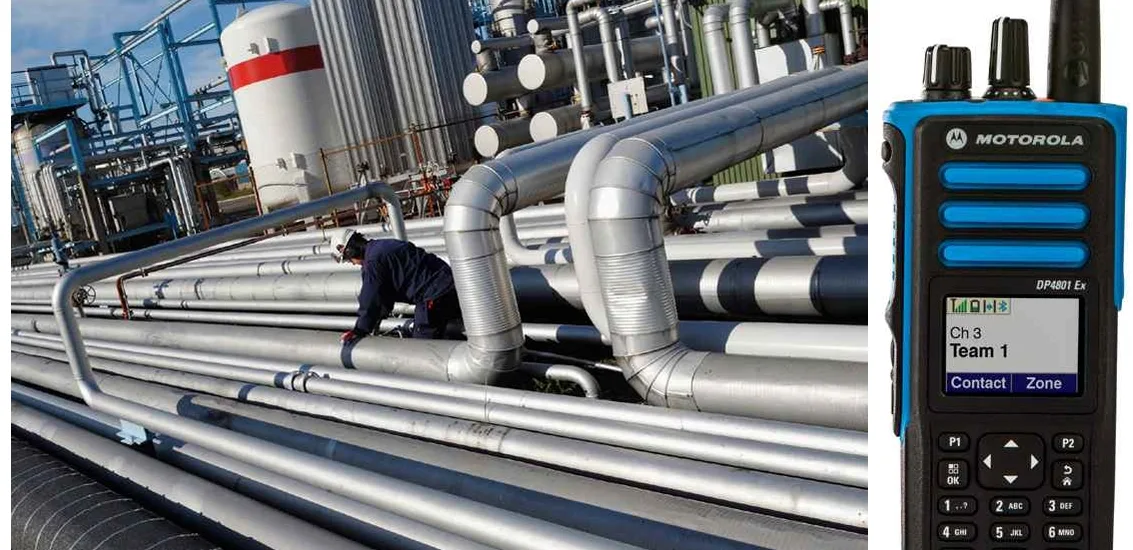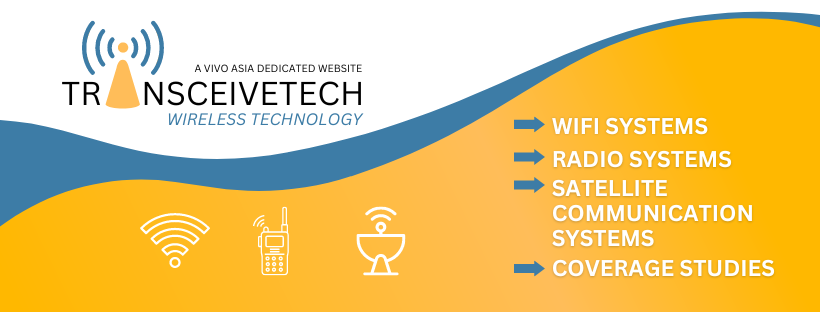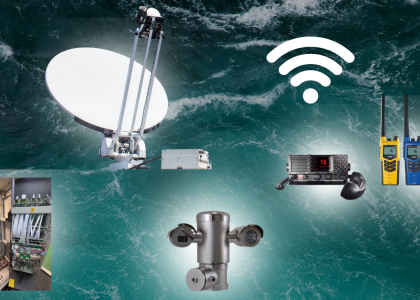For decades, analog UHF (Ultra High Frequency) radio systems were the standard for industrial communication. However, the shift to digital UHF radio systems is gaining momentum, offering numerous advantages in terms of efficiency, reliability, and features.
In industries such as oil & gas, maritime, and public safety, seamless communication is critical for efficient operations and safety. Let’s explore the key benefits of switching from analog to digital UHF radio systems and the important considerations for industries making the transition.
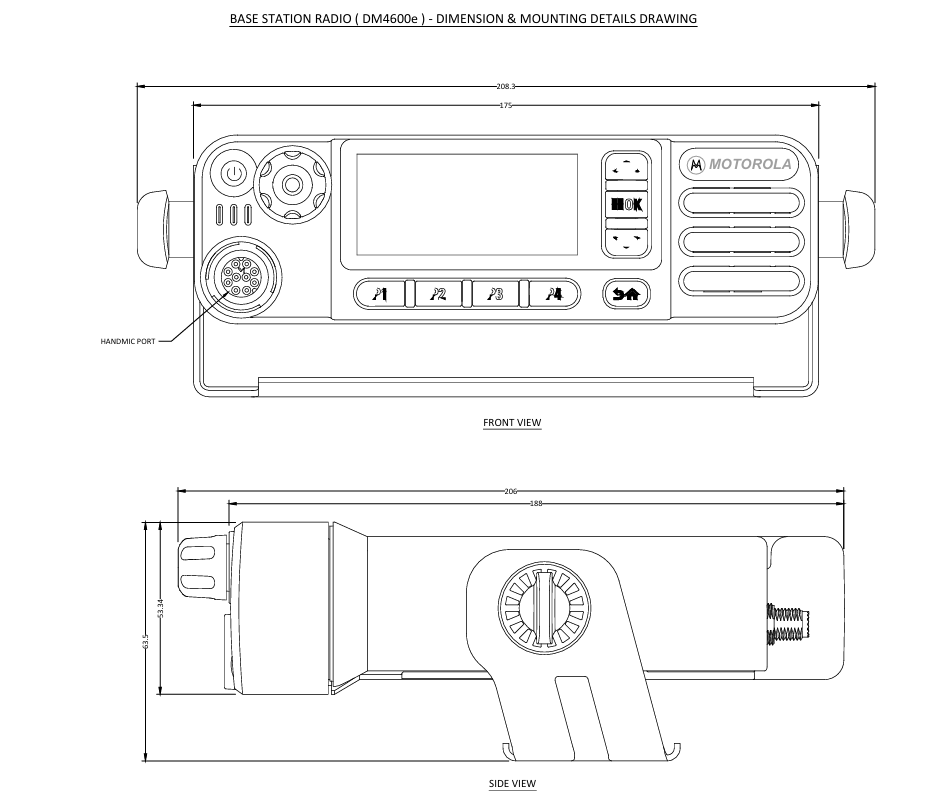
Why the Shift to Digital UHF Radio?
Improved Audio Quality
One of the most significant improvements that digital UHF radio offers over analog is enhanced audio clarity. In analog systems, as the signal weakens, background noise and interference increase, making communication difficult in noisy industrial environments. Digital UHF radios, on the other hand, maintain high audio quality even at the edges of their coverage area by eliminating background noise and minimizing interference.
Greater Signal Coverage
Digital UHF radios use advanced modulation and signal correction techniques to provide better range and coverage than analog systems. This is particularly beneficial for environments like FPSO vessels, offshore platforms, and large-scale industrial facilities where reliable communication across wide areas is crucial. The improved range and reliability help ensure constant communication, even in difficult conditions.
Efficient Spectrum Usage
With the limited availability of UHF frequency bands, spectrum efficiency is critical. Digital UHF systems employ techniques such as TDMA (Time Division Multiple Access) and FDMA (Frequency Division Multiple Access) to allow multiple users to share the same channel without interference. This enables more efficient use of bandwidth, reduces congestion, and increases the number of users that can operate simultaneously.
Advanced Features
Digital UHF radios come equipped with a wide range of features that analog radios simply can’t offer. These include:
Text messaging: Useful for silent communication in certain environments.
GPS tracking: Enables real-time location monitoring of personnel and assets, which is essential for safety and logistics in industries like maritime or oil and gas.
Encryption and enhanced security: Digital systems provide better encryption options, ensuring that sensitive communication is secure and less prone to eavesdropping.
Scalability and Integration with Modern Systems
Digital UHF radios integrate more easily with modern technologies such as dispatch software, VoIP systems, and other digital communication tools. This level of integration is particularly valuable for industries that rely on real-time data sharing and remote monitoring, such as those operating maritime vessels or managing critical offshore installations.
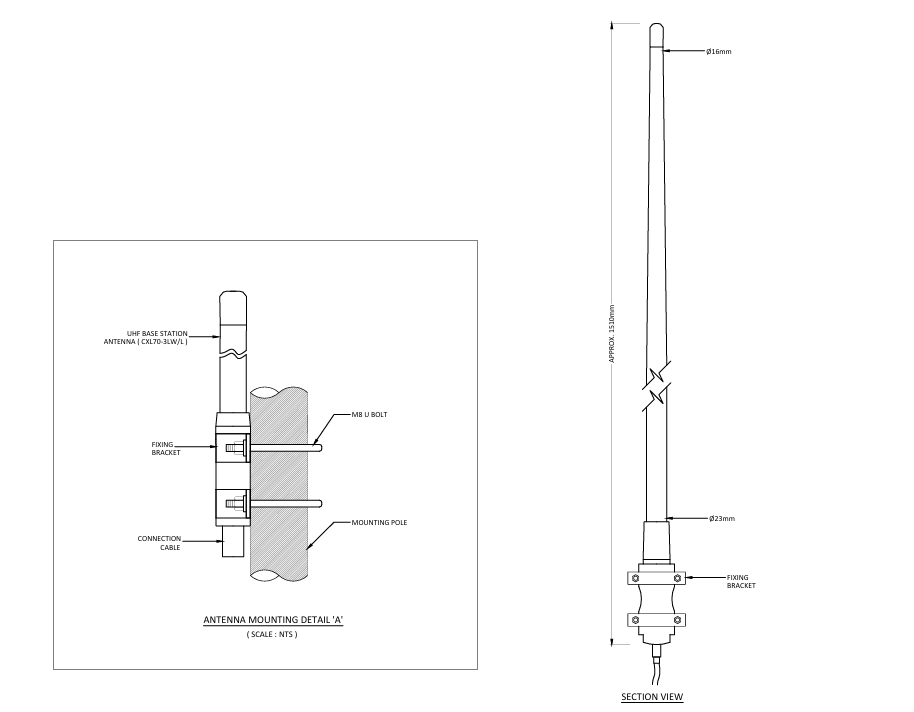
Key Considerations When Switching
Equipment and Infrastructure Investment
Switching from analog to digital UHF radio requires an initial investment in new hardware, such as radios and base stations, as well as possible upgrades to existing infrastructure. However, the long-term benefits in terms of operational efficiency and reliability often outweigh the upfront costs. It’s important to assess your current system’s limitations and the specific requirements of your operations before making the switch.
Compatibility and Transition Period
If you currently operate an analog system, ensuring compatibility between old and new equipment during the transition phase is essential. Many digital radios can operate in both analog and digital modes, allowing for a phased migration that minimizes disruptions to communication.
Training and Adoption
Introducing new technology requires proper training to ensure that employees can use the equipment effectively. Plan for a period of training and gradual adoption to help staff become comfortable with the new system and its advanced features.
Regulatory Compliance
Before making the switch, it’s crucial to review the regulatory requirements regarding UHF frequency use in your region. Digital systems may need specific licensing or adherence to industry standards, particularly in maritime, oil, and gas sectors, where compliance is strictly regulated.
Explore our dedicated site for wireless systems!
Get the Right Team
Switching from analog to digital UHF radio systems offers a host of benefits, from improved audio clarity and expanded coverage to advanced features like GPS tracking and encrypted communication. For companies operating in harsh environments like FPSO vessels or offshore platforms, the move to digital UHF radio is an essential step toward enhancing operational communication.
Get the right team to do the planning carefully, understanding the specific needs of your business, so that you can make the switch smoothly and fully leverage the advantages of digital technology.






